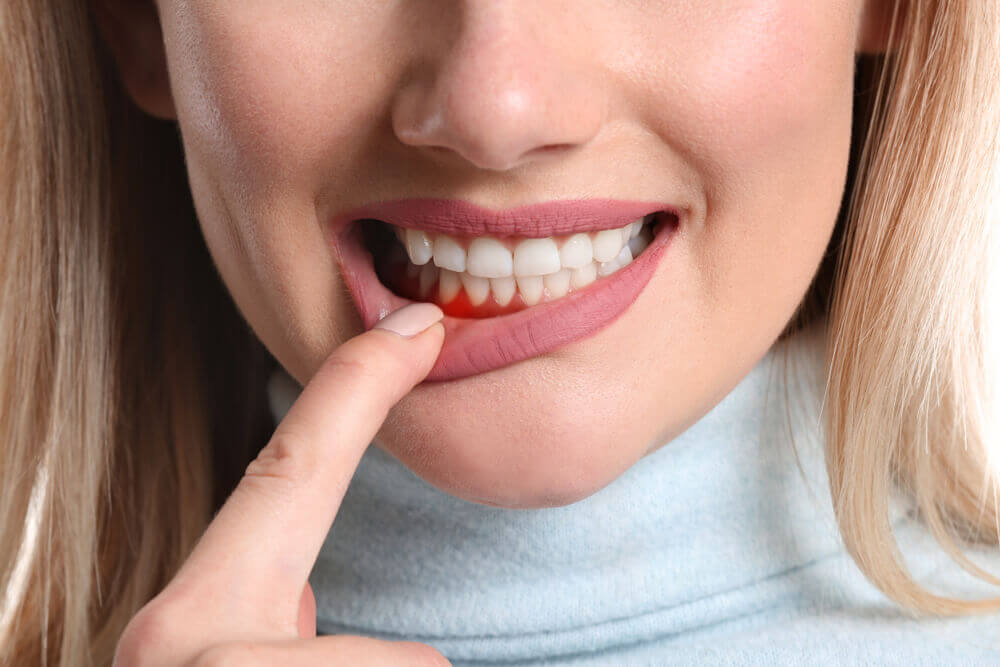
Periodontal(Gum) Treatment
Though periodontitis is a destructive disease, it is possible to halt it with careful assessment, treatment, dental hygiene practice, and follow up at Ponsonby Dental Boutique.
Your gums hold your teeth firmly. You might be aware that your teeth are supported by the bone, which ensures your teeth are firmly in place and don’t fall down. Whenever there is bone loss, teeth start getting mobile and move easily, and when there is excess bone destruction, it leads to tooth loss.
The bone that supports your teeth is called the alveolar bone, and your teeth lie in bone sockets called alveolar sockets. Your gums line the alveolar sockets and stay firmly around your teeth. The firm and close gum lining prevent harmful bacteria from entering the alveolar sockets.
When there is poor oral hygiene, plaque gets deposited near the gum lining. It causes tender, swollen, and bleeding gums. This condition is called gingivitis. We should address gingivitis because untreated gingivitis leads to a harmful condition called periodontitis.
Periodontitis is a condition wherein there is bone loss, and teeth get loose. The gingiva separates from the tooth, and there are some gaps between teeth and gums. Such spaces between your teeth, teeth roots and gums are called as pockets.
Periodontitis is a severe condition, and we need to address it immediately. Any delay could lead to tooth loss.
Causes of periodontitis
Periodontitis is quite common, and the leading cause of periodontitis is poor oral hygiene.
Incidence/ Statistics
According to a survey, periodontitis affects 1 in 5 Australians. Besides, the chances of periodontitis increase with age. 4 out of 10 Australians above the age of 55 years are suffering from periodontitis.
You might agree that prevention is better than cure.
The best way to prevent periodontitis is to maintain optimal dental hygiene. Brushing twice a day, flossing every day, and meeting your dentist every 6 months are some of the best oral hygiene practices.
Please refer to our dental hygiene article for more details.
Diagnosing periodontitis
We diagnose periodontitis via clinical examination/ looking for signs and symptoms such as measuring gingival pockets and checking the mobility of teeth and X-rays.
Treatment
At Ponsonby Dental Boutique, we provide the best care for treating periodontitis and improving your oral health. We have a team of expert professionals who address the condition in the best possible manner.
Scaling
The treatment for periodontitis begins with a thorough scaling and deep cleaning of gingival pockets, which is called subgingival scaling. This process helps in healing and prevents further deterioration of gums. We do the scaling via ultrasonic devices and handheld devices as needed.
Root planing
Sometimes roots are exposed/ visible in periodontitis. It simply means there is excess destruction of the bone that has exposed the roots within the alveolar bone. In such cases, we do root planing, a process where we clean the debris/ plaque deposited on the roots and smoothen the surfaces. Smoothening the root surfaces help in preventing further accumulation of plaque and calculus on them. It ensures there are no further bone loss. The process also promotes recovery by facilitating the reattachment of the gingiva to the roots.
Antibiotics
We prescribe antibiotics as needed to eliminate the bacterial infection, to prevent further bacterial infection, and enhance healing. Due to poor oral hygiene, unhealthy bacteria grow enormously in the mouth.
Topical antibiotics: Topical antibiotics are the antibiotics at the site of infection. We prescribe topical antibiotics in the form of gels placed in the pockets as and when needed.
Oral antibiotics: Medicines taken via mouth help in overall healing and eliminating harmful bacteria from your body.
We prescribe mouthwashes with antibacterial and refreshing properties based on the need.
Surgery
Severe periodontitis may need surgery.
At Ponsonby Dental Boutique, we will treat you and help you recover from Periodontitis. We also make referrals as necessary to specialists who treats severe gum diseases/Periodontists.


